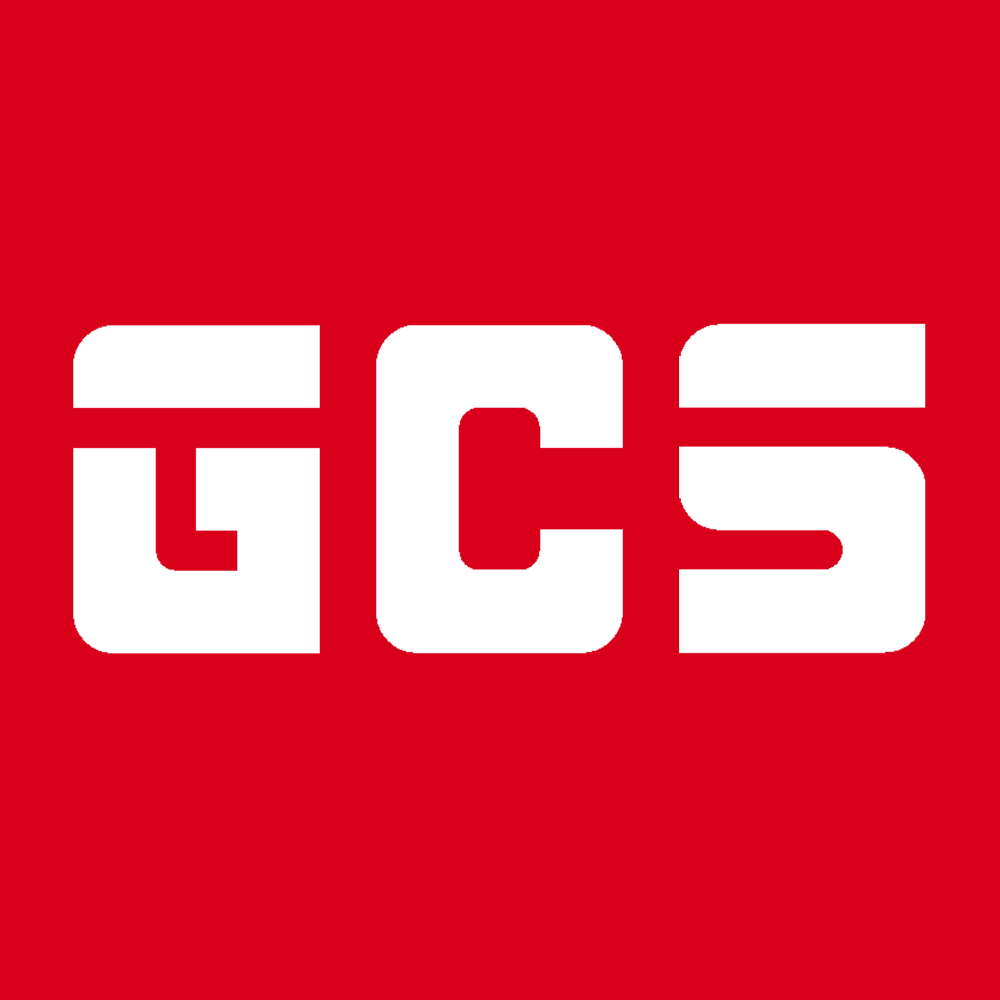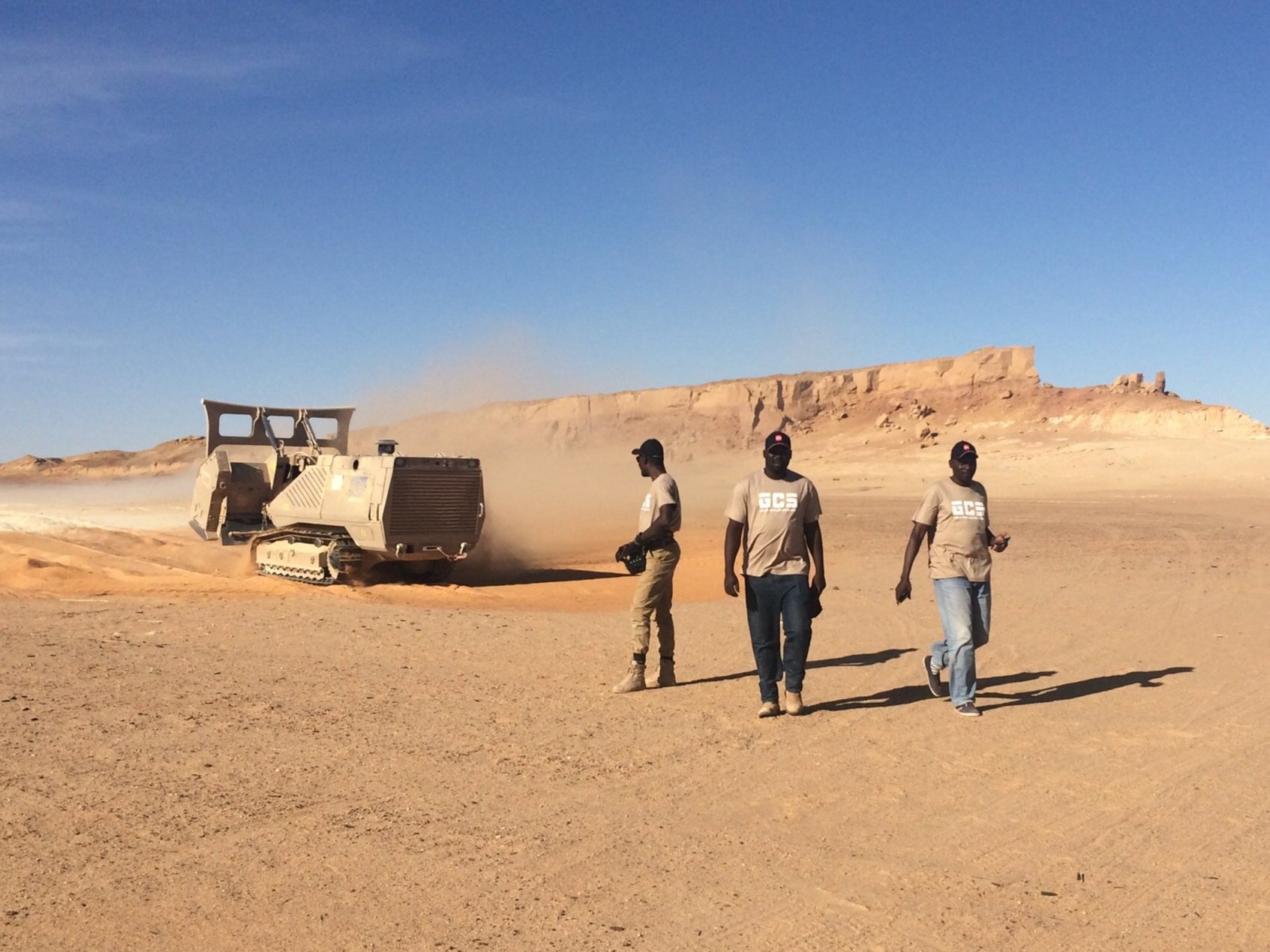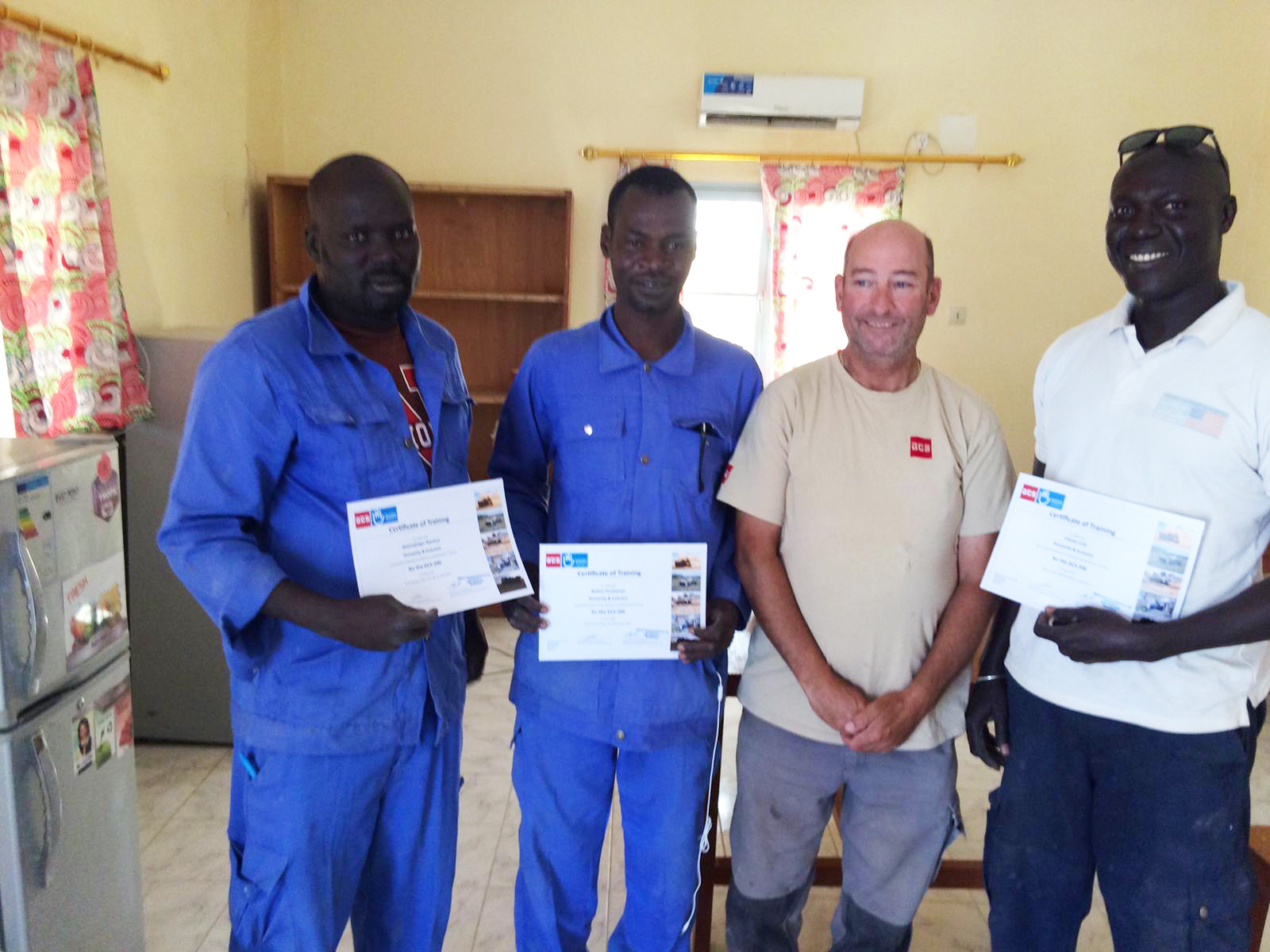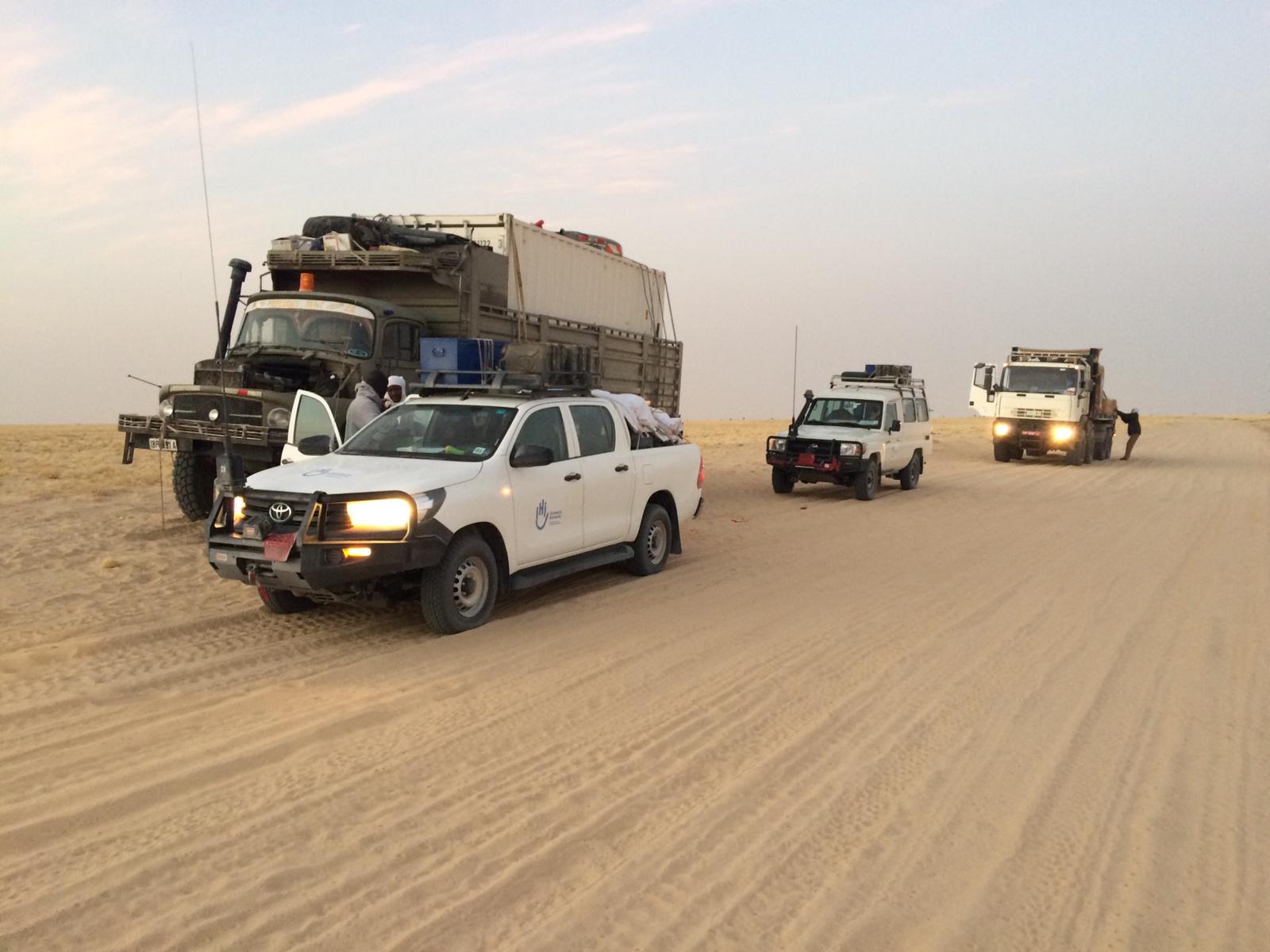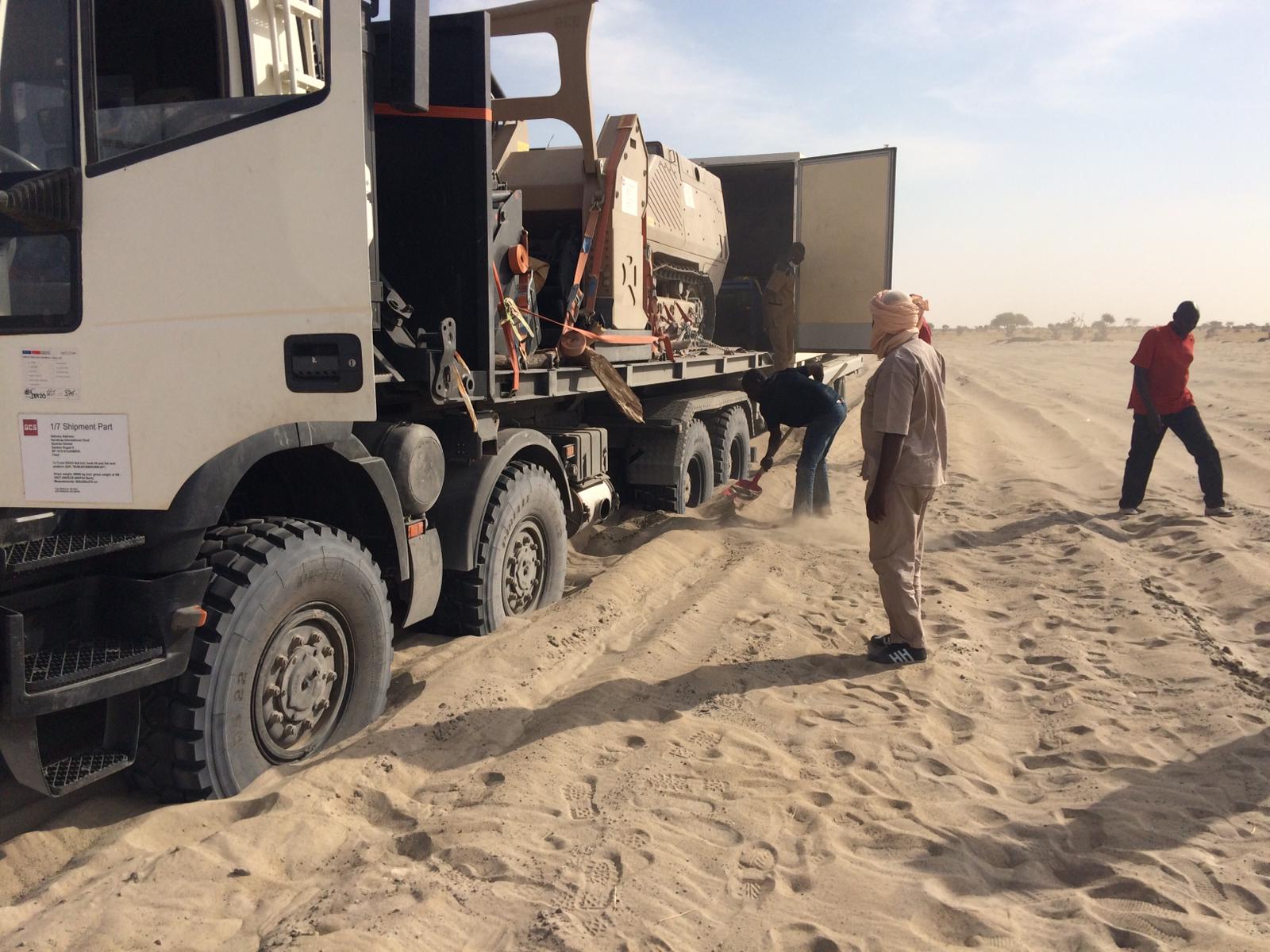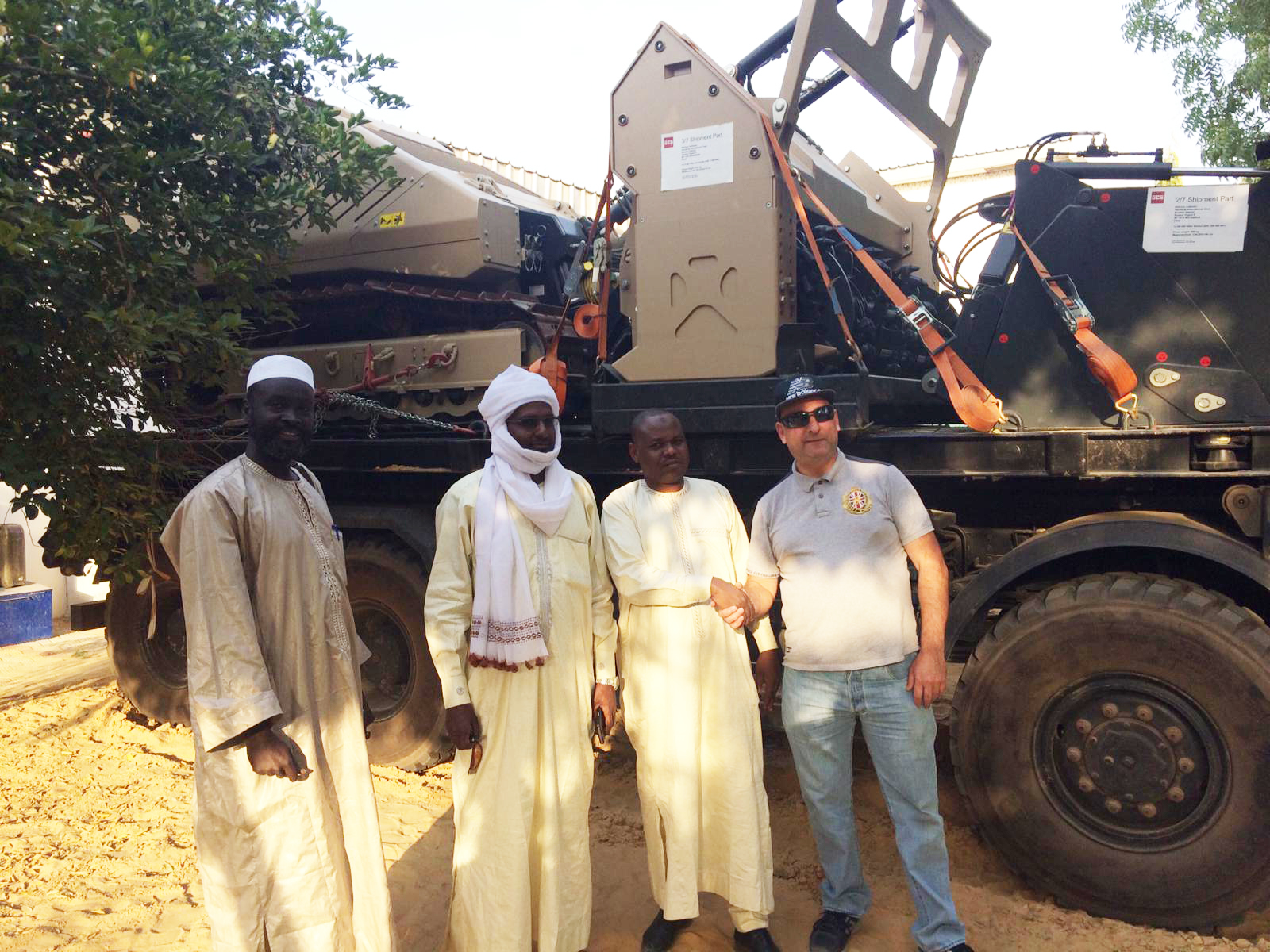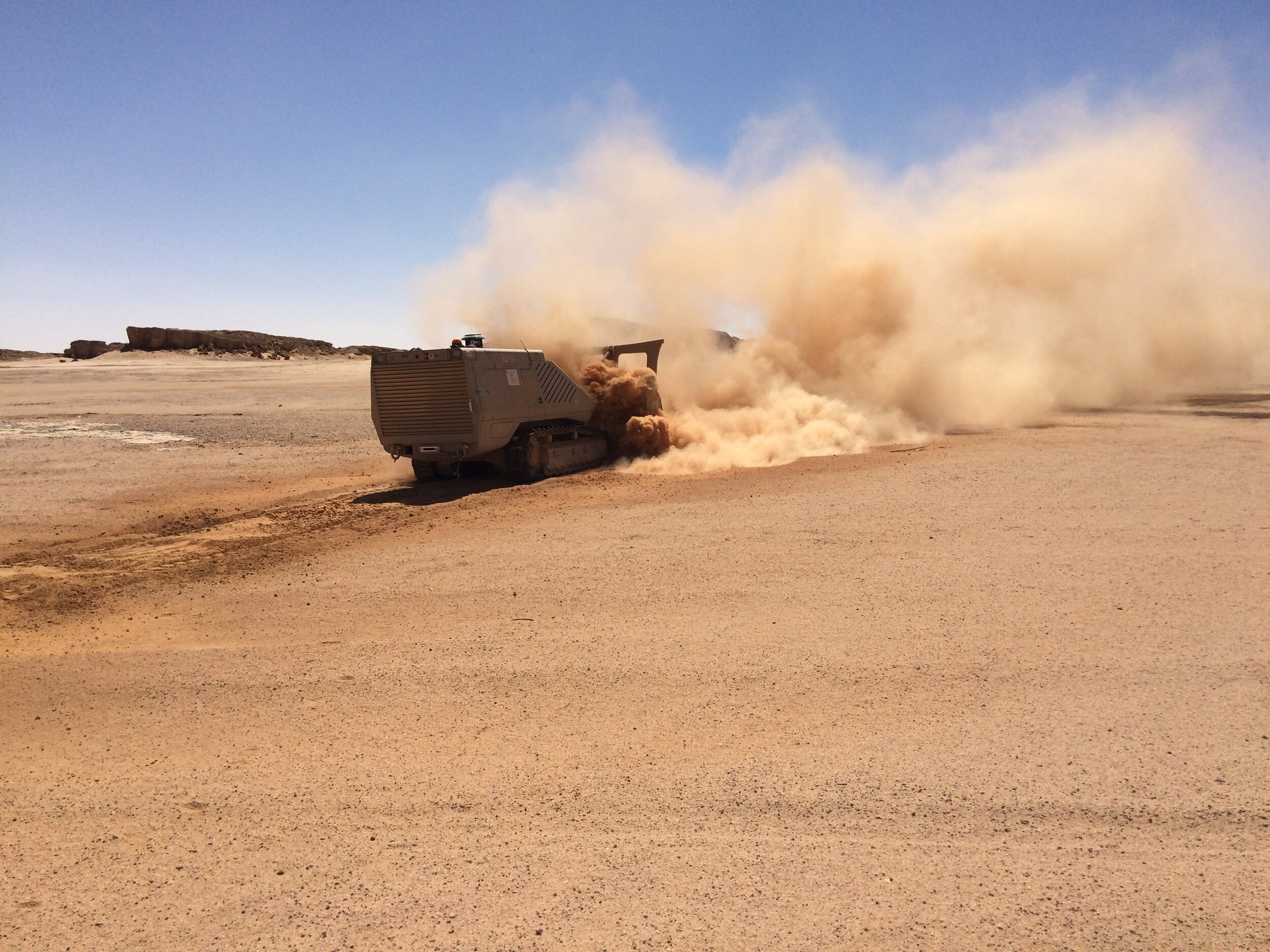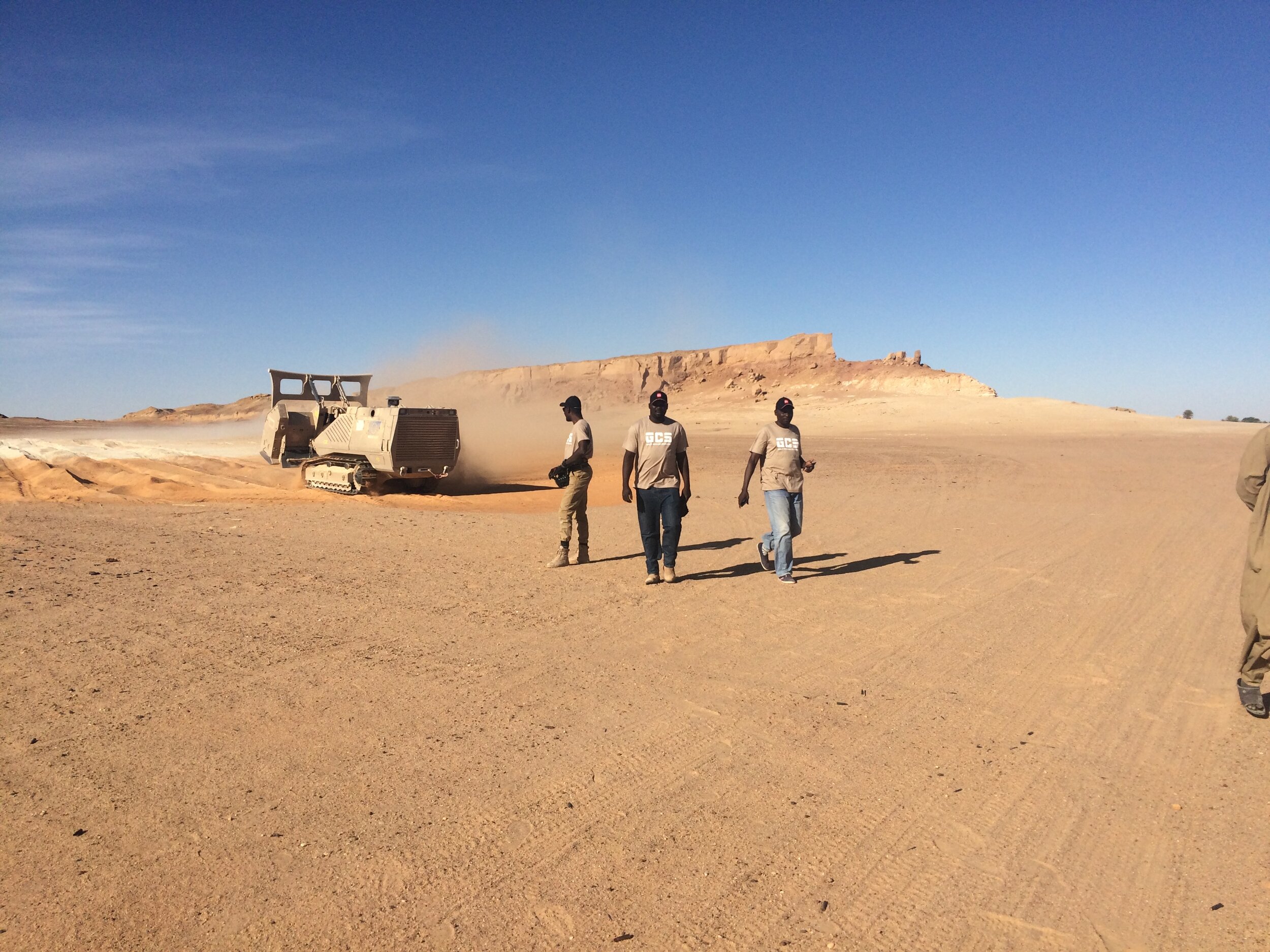At the beginning of the 2019, the German Army delivered the first of seven complete MineWolf systems to the GCS manufacturing site in the South of Germany for a regular mechanical assets overhaul. Since then our experienced technical staff in Stockach worked hard, disassembling and reassembling every last component, until they were confident that the system would operate as new. With the return of the enhanced MW240 to the German Army this December, GCS is proud to announce the successful completion of its first workshop system repair. GCS plans to do the regular overhaul for a total of seven complete systems with a variety of attachments, as well as the required workshop infrastructure, by the year 2022. Hagen Fischer, Head of Product Development at GCS, and former EOD operator at the EOD Training Centre in Stetten am kalten Markt says, “we are very pleased with the first complete overhaul of the platform and of its components. The hard work has really paid off.”
LONG-TERM PARTNERS
GCS is a long-time and trusted partner of the German Army and has fulfilled several maintenance contracts in recent years. The systems were originally delivered in 2010/2011 to provide the German Army with an urgently needed C-IED capability for the ISAF mission in Afghanistan and have proven to be an effective tool in neutralising Improvised Explosive Devices (IEDs) laid by the insurgents. Since then, GCS implemented multiple upgrades and made sure the equipment was always mission-ready.
STAYING OPERATIONAL AT ALL TIMES
The ultimate goal for any army is to keep their mechanical assets operational all the time, so the machines need to be maintained on a regular basis. As the machines were purchased many years ago, it is to be expected that some of the parts will age with time, some will break, others need to be overhauled and some components become obsolete. This is where GCS steps in. “Servicing and maintaining mechanical assets in line with the German Army’s requirements is a complex task and demands a thorough understanding of military maintenance procedures,” adds Fischer, who served 12 years with the German Army prior to working at GCS.
A service which GCS offers to any clients with GCS and MineWolf machines, the overhaul of the mechanical assets includes a very meticulous check of the main components to ascertain which ones need to be replaced, and which need to be overhauled. Not only does the overhaul extend the lifetime of the military equipment, it guarantees that the machine runs as new.
SOLUTIONS TO MEET CLIENT REQUIREMENTS
In the case of the German army, the overhaul was conducted in our manufacturing site in Germany. However, in line with our commitment to meet specific client requirements, GCS provides the overhaul service to military clients in their own military bases and abroad. In some cases, the overhaul may include new developments to meet specific requirements. For instance, some of our clients abroad must adhere to specific in-country safety regulations. GCS can suggest developments to be included in the machine to address these regulations. In other cases, there are new operational requirements and the current machine needs to be amended to meet these requirements, for instance a client may have the requirement for an additional camera on the machine, or on one of the attachments.
